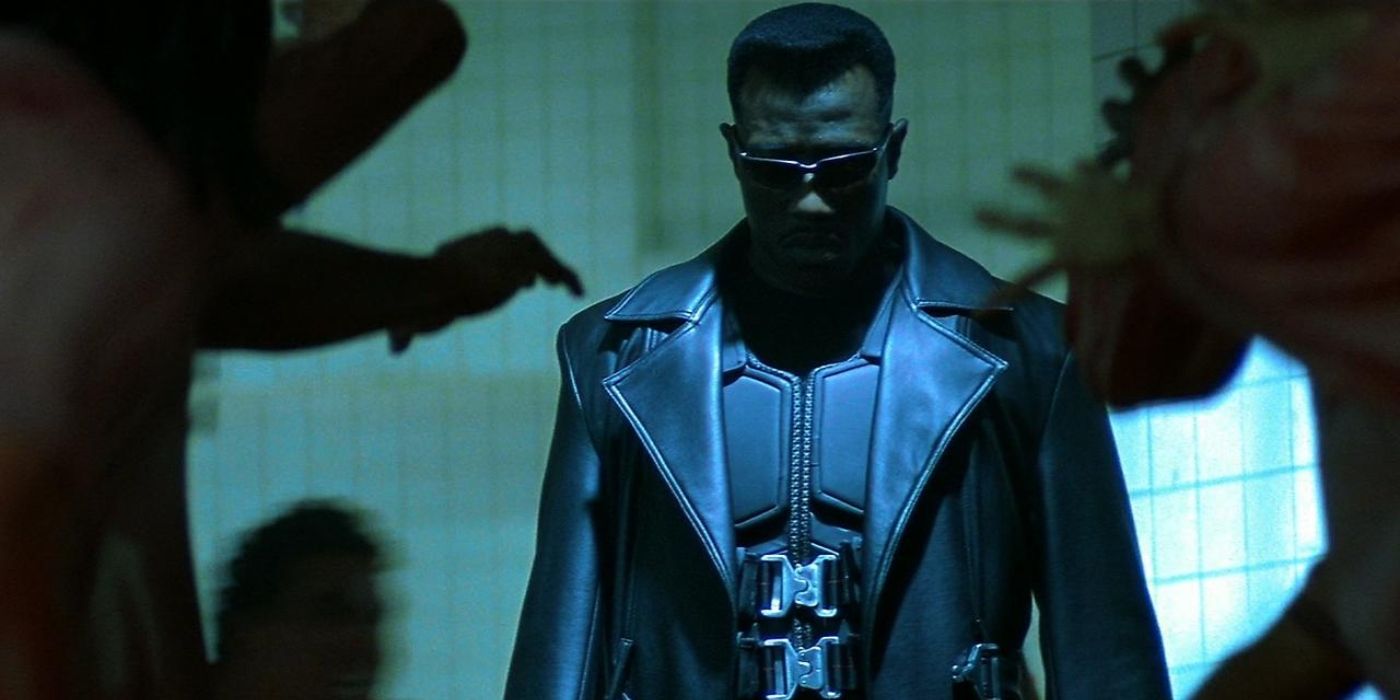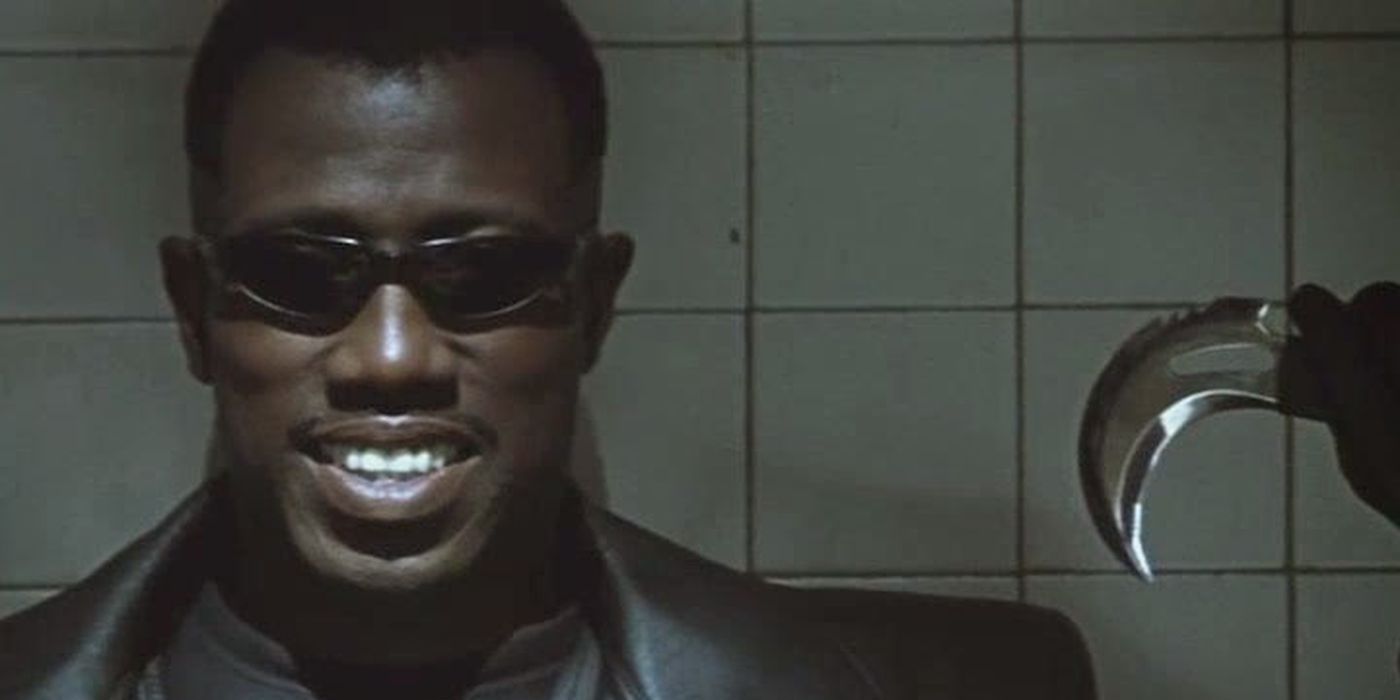Before 1998's Blade, Hollywood adaptations of superheroes and action comics had been largely focused on grounding the characters in a more familiar cinematic form. Batman and Batman Returns make several deviations tonally from the original Dark Knight and are more representative of director Tim Burton's work. Characters like Spawn, Steel, and Judge Dredd were sanded down to fit the mold of a more typical action film format, losing a lot of what made them unique as independent comic characters. But while cinematic adaptations of superheroes like Spider-Man and the X-Men were in development and would go through a (more successful) adaptation process, New Line Cinema's Blade was something different.
Twenty-five years after its release, Blade's full-throated acceptance of superheroes considered weirder than the marquee A-list characters and embracing a wildly different tone alongside the heroics helped set the stage for the Marvel Cinematic Universe to become one of entertainment's most dominant brands. It also created a world where characters like Doom Patrol and Peacemaker could get successful multi-season shows that confidently draw on a weird canon of characters and concepts. Without Blade, the superhero genre on-screen would be a very different thing.
What Makes Blade Special
Directed by Stephen Norrington with a script by David S. Goyer, Blade streamlines the character's origins but keeps many of the same bizarre elements. When Deacon Frost (Stephen Dorff) attacks Vanessa Brooks (Sanaa Lathan) while she's pregnant, he unknowingly imbues her child with the qualities of the Daywalker -- allowing him the physical benefits of vampirism without many of the drawbacks. Growing up to become a skilled vampire hunter, Blade (Wesley Snipes) works alongside his mentor, Whistler (Kris Kristofferson), to bring down as many of the monsters as he can. While the film does make some tweaks to the source material -- notably replacing Blade's comics mentor, Jamal Afari, with a more "old gunslinger" inspired Whistler -- the film never tried to be too grounded in reality.
While the real world could bump up against it, most prominently with the infected doctor Karen Jenson (N'Bushe Wright), Blade was unafraid to be weird in the best way. There are vampire raves with blood sprinklers, ancient orders of vampires operating in secret, and even an ancient blood goddess that Frost seeks to raise back into the material world. If anything, Blade leans into the superhero soap opera elements, resurrecting Blade's mother similarly to a storyline from the comics that had just been released a few years beforehand. Blade treats its sometimes ridiculous characters and concepts with the same kind of sincerity that they received in the comics. Blade wasn't converted into a pure action film and felt like a genuine adaptation of a conceptually experimental take on the traditional superhero genre -- and it works.
Without Blade, There'd Be No MCU
Blade doesn't try to deny any of its approach to the superhero genre or vampire tropes and instead fully embraces them. While film adaptations of heroes like Spider-Man, Batman, and the X-Men would dominate the genre for another decade, Blade proved that superheroes going down a different tonal path than just typical action films could work. It was also the first Marvel movie to be successfully released in theaters and could be seen as a direct precursor to the success of the MCU. Nominally a lower-tier character in the Marvel Universe with a far more niche approach to the genre, the thing that makes Blade unique to the rest of the comic book adaptations of its era was its embrace of the more bizarre elements of the character and the tonal uniqueness that came with him. This allowed other filmmakers to do something similar with different characters and genres, like spy thrillers (Captain America: The Winter Soldier), sci-fi (Guardians of the Galaxy), family comedy (Ant-Man), and old-school horror (Werewolf by Night).
Without Blade highlighting how superheroes and vampires could easily mix, there might not have been as much incentive to give an optimistic throwback story like Captain America: The First Avenger or to make something as conceptually out there as Guardians of the Galaxy. The success of Blade and its subsequent sequels was even a big boon for diversity in the genre, with Wesley Snipes' confident performance proving superheroes didn't all have to look the same. Superhero films -- and, as a result, likely a lot of modern cinema -- are different without Blade debuting 25 years ago, kicking vampires in the face. While it's exciting to see the character finally making his cinematic return as a part of the MCU, it's worth remembering how important the first film featuring Blade was to his genre.


